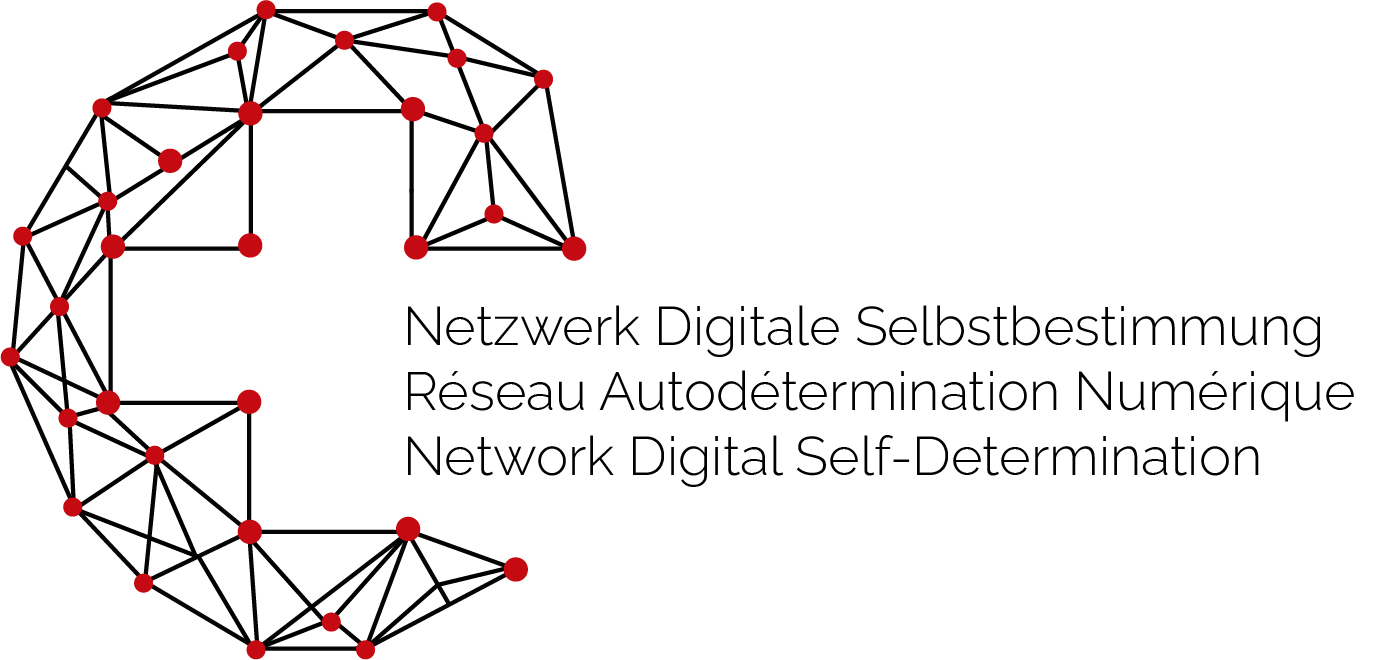Background
The principles of digital self-determination are set out in the Federal Council's Digital Switzerland Strategy and the Digital Foreign Policy Strategy. Against this background, the Digital Self-Determination Network was formed in 2019 so that citizens, companies and public institutions could reap the benefits of the data economy while adhering to the fundamental values of a liberal democratic society.
The following partners are involved in creating and expanding the Digital Self-Determination Network:
Mission and objectives
The network was created to promote digital self-determination in Switzerland. Our society should enjoy the full potential of the data economy while still upholding our democratic values. All stakeholder groups need to work together and contribute to building common digital platforms and data spaces that are secure and trusted. Only then can we harness the added value they bring for the benefit of all.
Principles
Implementing digital self-determination is only possible if the following basic principles are in place:
- Trust:transparency about who has access to which data and for what purpose data is being collected and processed is a key factor in ensuring traceability and thus social trust in the digital transformation process.
- Control and self-determined transfer of data: citizens have control over their personal data. They can access all data relevant to their decisions, decide on the significance and potential value of this data and, on this basis, determine how it may be used by third parties.
- User-centric, data-driven ecosystems: data-driven ecosystems give users more choice and offer solutions tailored to their specific needs. Users are able to choose varying degrees of disclosure for their data and are clearly informed about these choices. Individuals are free to transfer their own data efficiently to other service providers.
- Decentralisation and proximity to citizens: data is controlled by different stakeholders instead of being concentrated in the hands of technology giants or state institutions. Decentralised data governance helps to prevent abuses of power. Data collaborations create new possibilities for the use of data and improve the services available at local and regional levels.
The network's functions/activities:
- Creating opportunities for all interested parties to exchange information on a range of topics, activities and lessons learned about trusted data spaces and digital self-determination
- Networking of stakeholders, suggestions for collaborations and support for initiating and implementing trusted data spaces
- Consultation forum for public decision-makers
- Support and funding for data collaborations (sector-specific and/or cross-sectoral)
- Opportunities to organise events
- Opportunities to write discussion papers
Members
The network consists of committed actors from all stakeholder groups in Switzerland. It is open to all individuals, companies and organisations interested in sharing and supporting the concept of digital self-determination.
How can I join the network?
Interested individuals and legal entities registered in Switzerland can become members of the network and participate in the cross-sectoral and/or sector-specific working groups and workshops.
